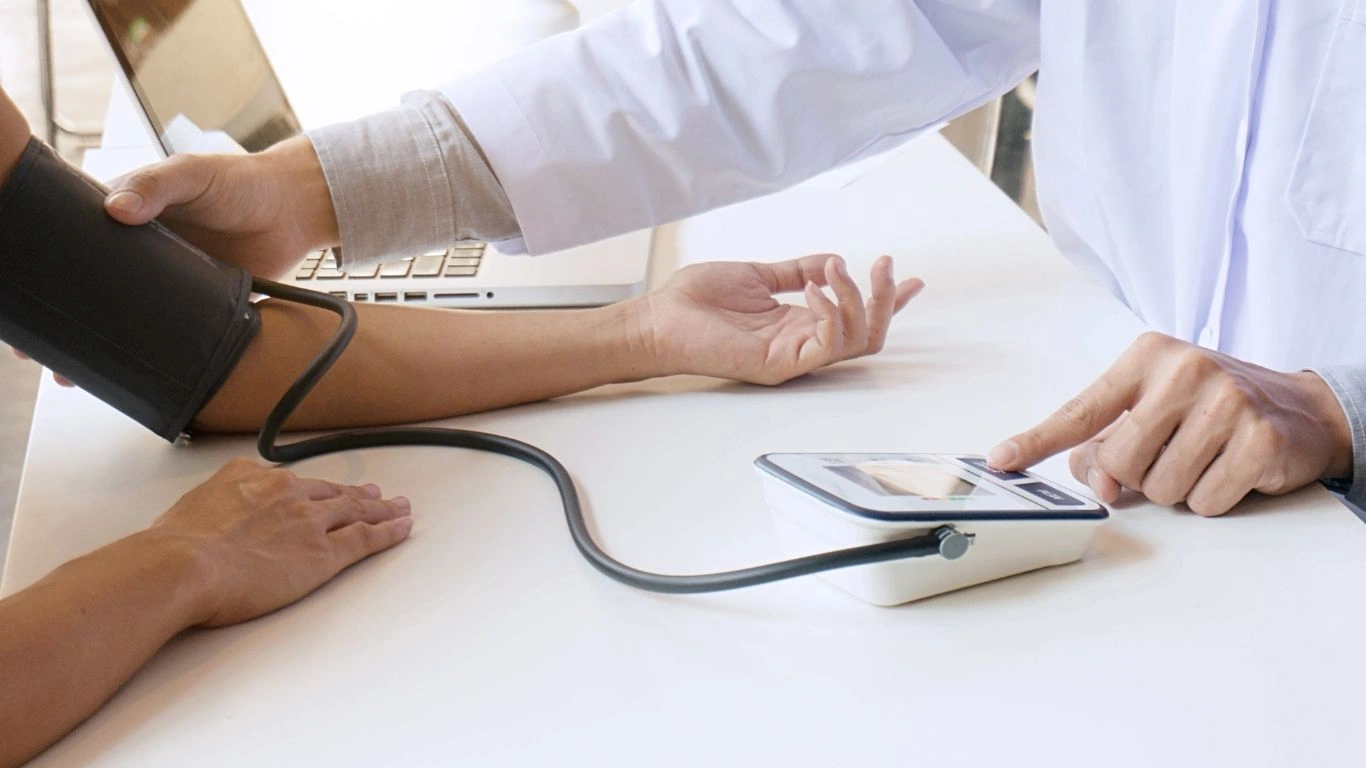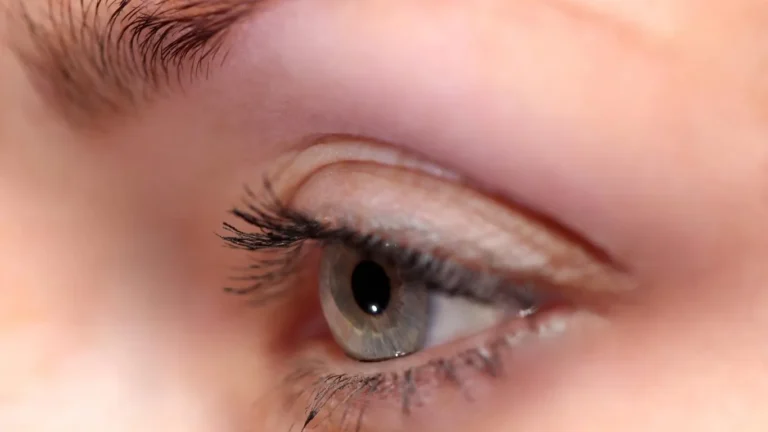High Blood Pressure and Brain Fog: The Shocking Link You Need to Know
Let’s talk about something I see all the time in my practice that doesn’t get nearly enough attention: high blood pressure and brain fog symptoms. If you’re feeling spaced out, forgetful, or like your thoughts are moving through molasses, and you’ve been told you have hypertension—or maybe you suspect you might—this might be more connected than you realize. Over the years, I’ve had countless patients sit across from me and say something like, “Doc, I just don’t feel as sharp as I used to. Could it be my blood pressure?” And honestly, they’re not wrong to ask. We’re finally starting to understand that the brain isn’t just passively affected by high blood pressure—it can be one of the first places we notice something’s off.
How Does High Blood Pressure Actually Affect Your Brain?

You might think of hypertension as something that only targets your heart, arteries, or kidneys—and while it definitely does, your brain is a major player in this story. High blood pressure, especially when it’s poorly controlled, can lead to changes in the blood vessels supplying your brain. We’re talking about stiffened arteries, decreased blood flow, and tiny micro-tears that build up over time.
When I explain this to patients, I like to use a garden analogy (I’m a sucker for simple metaphors). Imagine your brain as this vibrant garden, full of blooming ideas and sharp recall. Now picture the hose watering it as your blood supply. If that hose becomes clogged, kinked, or starts spraying with too much pressure, those plants—your memory, concentration, mental clarity—don’t get what they need. That’s where the “fog” rolls in.
Early Signs You Shouldn’t Ignore
I get it—everyone has foggy days. But if you’re noticing these persistently, especially with known high blood pressure, it might be time to pay closer attention:
- Short-term memory glitches (like walking into a room and forgetting why you’re there… again)
- Trouble focusing or staying engaged in conversations
- General mental fatigue, even when you’re physically well-rested
- Difficulty multitasking or completing familiar tasks
Patients often chalk these up to aging, stress, or lack of sleep. While all those things play a role, I encourage folks to zoom out. If your blood pressure’s been creeping up, or you’ve been off your meds (yes, I see you), this could be your brain waving a little red flag.
Why Brain Fog Symptoms Are Often Overlooked in Hypertension

In medical school, we’re taught to look for the big stuff when it comes to hypertension—heart attacks, strokes, kidney failure. Brain fog doesn’t really make it into that list. But from what I’ve seen in clinic, it absolutely should. We’re just not trained to connect the dots between slightly elevated BP and a patient who can’t remember their coworker’s name for the third time this week.
That’s changing, thankfully. There’s growing evidence that chronic hypertension can lead to subtle but significant cognitive changes—even before you get into “dementia territory.” That means even if you’re not in a crisis, your brain might still be struggling silently in the background. And unlike stroke or heart failure, this decline is quiet and gradual. It sneaks up on you.
My Personal Observation With Patients
I’ve had middle-aged patients come in, looking perfectly healthy, with blood pressure in the 150s or higher, and they’ll tell me something like, “I feel like I’m in a fog all day. I used to be so sharp.” And when we start getting their pressure under control, guess what? That fog starts to lift. It’s not magic—it’s physiology. Their brain is finally getting what it needs again.
Blood flow matters. And not just in life-or-death situations. Even a mild reduction in brain perfusion can start messing with your executive function, your clarity, your mental stamina. And if you’re in your 30s, 40s, 50s—you’re not “too young” for this. I’ve had patients in their 20s showing early symptoms.
What’s Going on Inside Your Brain?

So what’s actually happening inside your skull when that pressure climbs? Here’s a breakdown without going full med school on you:
- Reduced cerebral blood flow: Over time, high pressure damages the lining of blood vessels, making them less flexible and narrowing them. That restricts how much oxygen-rich blood gets to your neurons.
- White matter lesions: This is a fancy term we use for little spots on brain scans that show damage. These often show up in people with chronic hypertension and correlate strongly with cognitive issues.
- Increased inflammation: High BP doesn’t just stress your vessels—it activates your immune system in weird ways. That inflammation can interfere with normal brain signaling.
- Sleep disturbances: Many patients with hypertension also have sleep apnea or disrupted sleep cycles, both of which worsen brain fog.
Put simply, it’s like your brain is trying to operate under less-than-ideal working conditions. And it knows it.
Why You Might Not Notice Until It’s a Pattern
One of the trickiest things about high blood pressure and brain fog symptoms is how subtle they can be—at first. We’re talking small dips in memory, momentary lapses in focus. It’s not dramatic. It’s just enough to make you feel “off,” like something’s not quite right. And because it creeps in so slowly, it’s easy to adjust and blame other things—stress, aging, a busy week. I’ve even had patients get a full neuro workup before anyone ever checked their BP properly.
But here’s the kicker: When we address the blood pressure, we often see improvement. Not overnight, and not for everyone, but for many people, treating the underlying hypertension leads to clearer thinking, better energy, and a noticeable difference in day-to-day cognitive function. That’s huge. That’s quality of life. And that’s why I’m so passionate about catching these signs early.
How Lifestyle Changes Can Improve High Blood Pressure and Brain Fog Symptoms

Okay, so you’re probably thinking, “Cool, Gwenna, I get it—my blood pressure is messing with my brain. But what do I actually *do* about it?” Fair question. And luckily, this isn’t one of those situations where the only option is a prescription (though meds are sometimes necessary—more on that in a bit). Lifestyle plays a massive role, and I’ve seen real, meaningful changes in people who committed to even small daily habits.
Let me be honest here: there’s no magic pill for brain fog. But when we tackle the root causes—like high blood pressure—we often see those cognitive clouds start to lift. Here are some tried-and-true strategies I walk my patients through:
1. Get Moving (It’s Not Just for Your Heart)
Yes, exercise lowers blood pressure. But here’s the cooler part—it boosts blood flow to the brain. That means better oxygen, better focus, and improved memory. One patient of mine started with daily 20-minute walks and reported feeling “less fuzzy” within two weeks. The science backs this up, but even without it, we know our brains just work better when our bodies are in motion.
- Aim for at least 150 minutes of moderate exercise a week.
- Start with walking, cycling, or even dancing—whatever keeps you moving consistently.
- Include some strength training twice a week if possible. Muscle mass matters for metabolic health!
2. Mind What You Eat (Your Brain’s Fuel Matters)
Food is medicine—or poison—depending on what you’re putting in your body. A diet high in processed foods, sodium, and sugar can skyrocket your blood pressure and dull your mental clarity. I’ve had patients cut back on fast food and sugary drinks, and within a month, they’re telling me their thinking feels clearer, their energy is steadier.
What I often recommend (and try to follow myself):
- DASH Diet: Specifically designed for blood pressure control. Rich in fruits, veggies, lean protein, whole grains, and low-fat dairy.
- Omega-3s: Found in fatty fish like salmon, flaxseeds, and walnuts—they help reduce inflammation and support brain function.
- Limit salt: Try to stay under 1,500 mg per day. Your brain will thank you.
Don’t Sleep on Sleep (Literally)

One of the most overlooked causes of both hypertension and brain fog symptoms? Crappy sleep. We all know we feel off when we don’t get enough rest, but chronic sleep deprivation raises blood pressure and damages the brain over time.
And if you snore heavily or wake up gasping? We *have* to talk about sleep apnea. So many of my hypertensive patients turn out to have undiagnosed sleep apnea—and once it’s treated, their fog lifts dramatically. Don’t sleep on a sleep study if your partner says you sound like a freight train at night.
Quick Sleep Hygiene Tips:
- Stick to a regular sleep schedule—even on weekends
- Limit screen time at least an hour before bed
- Keep your bedroom cool, dark, and quiet
- Cut caffeine after noon (this one’s tough, I know)
I once had a patient who swore she was getting “plenty of rest” but woke up groggy every morning. A simple overnight sleep study revealed moderate sleep apnea. After starting treatment, she said she felt “like her brain rebooted.” That’s how much proper sleep matters.
When Medication Is the Right Move

I’m all about lifestyle first—but let’s be real. Sometimes, lifestyle changes alone aren’t enough. If your blood pressure is consistently above 140/90 despite your best efforts, we need to talk meds. And there’s no shame in that. The goal is to protect your organs—including your brain—before lasting damage happens.
Here’s what I tell my patients: meds aren’t a failure. They’re a tool. Just like eyeglasses help you see more clearly, blood pressure meds help your body function better. And the right combination, tailored to you, can make a huge difference in how you feel mentally.
There are several classes we commonly use:
- ACE inhibitors and ARBs: Great for kidney and brain protection
- Calcium channel blockers: Good for older adults and often well-tolerated
- Diuretics: Help your body shed excess salt and water
- Beta-blockers: Sometimes used when anxiety plays a role too
I work closely with each patient to find the right mix. And I always emphasize: if you notice any side effects or feel worse mentally after starting a med, tell me. We can adjust. Brain fog shouldn’t be the cost of lowering your pressure—it should get *better*, not worse.
Tracking Progress the Smart Way
One tip I give all my patients dealing with both high blood pressure and brain fog symptoms: keep a journal. Seriously. Track your BP readings, sleep quality, food intake, stress levels, and how your brain feels day-to-day. You’ll start to notice patterns—and that’s incredibly helpful in fine-tuning your care plan.
Sometimes, people think their memory or focus is just “off,” but when we look at their log, we realize it’s worst after poor sleep or salty meals. That insight? Gold.
Stress, the Hidden Culprit You Can’t Ignore
Look, stress is part of life. But chronic, unmanaged stress? That’s like gasoline on the blood pressure fire—and it’s one of the top triggers I see behind both hypertension spikes and brain fog episodes.
I’ve had folks with near-perfect numbers during vacation come back home to work stress and—bam—numbers shoot up, and that hazy, distracted feeling returns. So yes, managing stress isn’t fluff. It’s a crucial part of the plan.
Some Real-World Tools I Recommend:
- Box breathing: Inhale 4 seconds, hold 4, exhale 4, hold 4. Repeat.
- Walk-and-talk therapy: Combine movement with venting. It works wonders.
- Mindfulness apps: Headspace, Calm, Insight Timer—easy wins.
- Journaling: Even a few minutes a day helps you process and reset.
The brain doesn’t operate well in survival mode. By calming your nervous system, you create space for clarity, memory, and decision-making to thrive. It’s not about being stress-free—it’s about being stress-resilient.
Brain Fog and Hypertension in Younger Adults: A Growing Concern

Here’s something that might surprise you: I’ve been seeing more and more patients in their 20s and 30s struggling with high blood pressure and brain fog symptoms. It used to be that hypertension was something we associated with older adults, right? But not anymore. Between work stress, poor sleep habits, processed diets, and screens on 24/7, younger people are developing early-stage hypertension—and their brains are paying the price.
I had a 28-year-old patient come in recently. Healthy on the outside, works a high-pressure tech job, drinks two energy drinks a day, gets maybe five hours of sleep on a good night. He came in because he was “tired of feeling out of it.” Sure enough, his blood pressure was 145/95. Not sky-high, but elevated enough to be interfering with his focus, short-term memory, and even his emotional regulation. Once we got his BP down with a mix of lifestyle tweaks and a low-dose med, his words exactly: “It felt like a fog lifted.”
Why Early Intervention Matters
The earlier we catch this, the better. Long-term high blood pressure silently chips away at brain health, increasing your risk not only for stroke but also for long-term cognitive decline. And here’s the kicker: those changes can begin even when you’re still “young.”
If you’re under 40 and regularly feeling scattered, unfocused, or foggy, don’t ignore it. Get your blood pressure checked. You might be surprised by what you find—and grateful you did.
Understanding the Brain Fog Timeline: How Fast Does It Happen?

This is a question I get asked a lot: “How quickly does high blood pressure affect the brain?” And the answer is… it depends. But here’s the thing—brain fog isn’t usually a sudden event. It’s more like a slow dimming of the lights. At first, you might just feel a little off. You chalk it up to stress or being busy. Then one day you realize you’ve been forgetting names, misplacing things, or rereading the same paragraph over and over. That’s when people finally start looking for answers.
Unfortunately, by that point, some of the damage may already be underway. But the good news? With the right care, we can often halt or even reverse the trend. Our brains are incredibly resilient when we give them the right conditions to thrive.
What I’ve Seen in Real Patients
There’s no one-size-fits-all timeline, but here are a few patterns I’ve noticed:
- In patients with moderate hypertension and poor sleep, brain fog can creep in within a few months.
- In older patients, even mildly elevated blood pressure can lead to noticeable cognitive changes over a year or two.
- For those with additional risk factors (like diabetes or smoking), it can show up faster and more severely.
In every case, though, awareness is the first step. Once patients recognize what’s going on, we can make a plan to turn things around.
Rewiring the Brain: Cognitive Recovery After BP Control
Let’s end on a hopeful note. Yes, high blood pressure and brain fog symptoms can be scary. But I want to emphasize something I’ve seen over and over again in my practice: the brain can bounce back.
Our brains are constantly reshaping themselves. It’s what we call “neuroplasticity.” And once you improve blood flow, reduce inflammation, sleep better, eat better, and get that pressure under control, many people report real improvements. I’ve had patients tell me they feel like they’re thinking faster, remembering more, even being more emotionally balanced—all from treating their blood pressure.
Tips for Supporting Cognitive Recovery
- Brain games: Crosswords, Sudoku, memory challenges—they’re not just fun; they help build neural connections.
- Social interaction: Conversations, group activities, and even regular phone calls stimulate your brain.
- Reading: Fiction, nonfiction, doesn’t matter. It builds focus and language skills.
- Learning something new: A new language, musical instrument, or hobby can light up new areas of your brain.
I had one patient in her 60s who joined a local Spanish class just to challenge herself. She said not only did her focus improve, but her confidence did, too. And yes, her BP came down thanks to a combination of meds, exercise, and a lower-sodium diet. Win-win.
Where to Go From Here: Taking the Next Step
If you’ve stuck with me this far, first of all—thank you. This topic matters deeply to me, not just as a physician but as someone who’s seen how deeply it affects people’s lives. Your brain is your most precious asset. Don’t let uncontrolled blood pressure quietly sabotage it.
My hope is that you walk away from this with a new awareness. Whether it’s getting your blood pressure checked for the first time, recommitting to your medication, or finally getting that sleep study done—do something. Your future self will thank you.
And if you’re not sure where to begin? Start by tracking your BP at home. Write down how you feel mentally each day. Keep a log. Patterns will emerge. Share it with your doctor. That collaboration can change everything.
Trusted Resources
If you want to dig deeper into this connection between hypertension and brain health, here are a few reputable places to start:
- National Institutes of Health
- Health.com
- Centers for Disease Control and Prevention
- American Heart Association
Disclaimer
This article is intended for informational purposes only and is not a substitute for professional medical advice, diagnosis, or treatment. Always consult your physician or qualified health provider with any questions you may have regarding a medical condition.

Dr. Gwenna Aazee is a board-certified Internal Medicine Physician with a special focus on hypertension management, chronic disease prevention, and patient education. With years of experience in both clinical practice and medical writing, she’s passionate about turning evidence-based medicine into accessible, actionable advice. Through her work at Healthusias.com, Dr. Aazee empowers readers to take charge of their health with confidence and clarity. Off the clock, she enjoys deep dives into nutrition research, long walks with her rescue pup, and simplifying medical jargon one article at a time.







